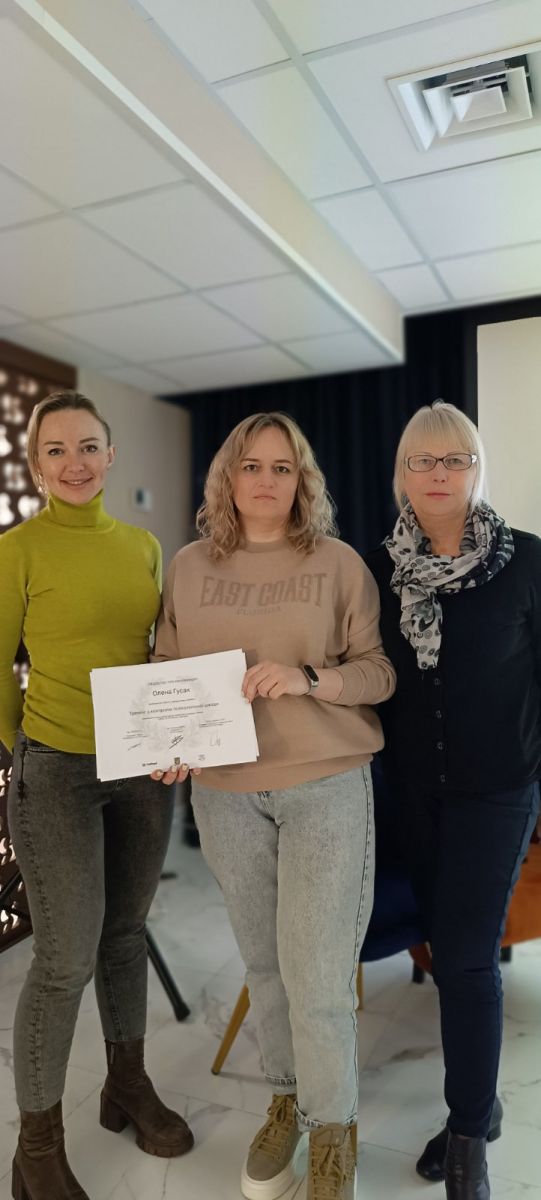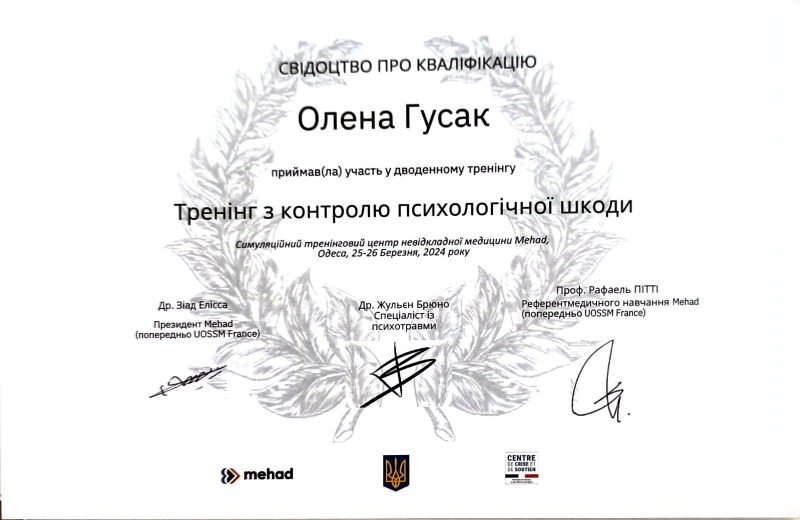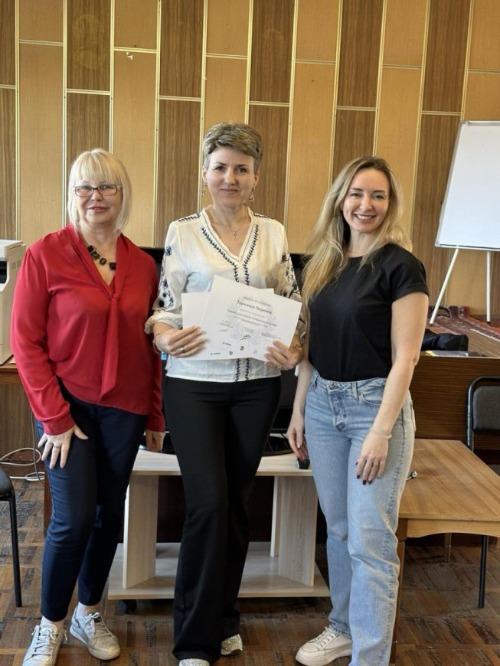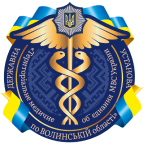
In cooperation with MEHAD, with the aim of acquiring work skills when patients are admitted to the health care center after emergency events or at the scene of the event, Olena Husak, a medical nurse of the therapeutic department of the inpatient hospital "TMO of the Ministry of Internal Affairs of Ukraine in the Volyn region", underwent a two-day training on psychotrauma at the Into Sana clinic (m .Odesa) and received the Certificate of Qualification "Psychological Damage Control Training". The participants considered such issues as:
- what is stress;
- formation of stress in a person;
- the concept of mobilization and activation of stress processes;
Stress itself is a non-specific reaction of the body to any external demand. Psychoemotional tension (stress) (from the English stress - tension) is a state of mental tension that occurs in a person in difficult conditions of everyday life and under special extreme circumstances. Stress was formed in humans as one of the important and natural elements of the adjustment mechanism. The impact of any significant factor causes two interrelated processes in the human body: the mobilization of physiological systems that ensure adaptation to this factor (hunger, cold, physical exertion, lack of air, toxin). Activation of standard, non-specific reactions that develop under the influence of any stimulus unusual for the body. These two interrelated processes are the essence of the stress response. Stress occurs when a combination of a stressor and a stress reaction occurs.




In cooperation with MEHAD, with the aim of acquiring work skills when patients are admitted to health care facilities after emergency events or at the scene of an event, the doctor - psychiatrist of the Center for Psychiatric Care and Professional Psychophysiological Selection Kateryna Redko and the nurse of the outpatient psychiatric care office of the CPD and PPV Lyudmila Torchyniuk, as well as Viktoriya Savchenko, doctor-therapist of the "TMO of the Ministry of Internal Affairs of Ukraine in the Volyn Region" DU, underwent a two-day training on psychotrauma (Poltava) and received a Certificate of Qualification "Training on Psychological Damage Control"


The training was quite productive and interesting and touched on many interesting issues, such as:
Dynamics of experiencing a traumatic situation and its four stages.
1. The first stage is the denial or shock phase; In this phase, which occurs immediately after the impact of the traumatic factor, a person cannot accept what happened on an emotional level. The psyche is protected from the destructive effects of a traumatic situation. It is usually short-lived.
2. The second stage is the phase of aggression and guilt. Gradually starting to experience what happened, a person tries to blame those who were directly or tangentially involved in the event. Then the person turns the aggression on himself and feels an intense sense of guilt "If I had acted differently, this would not have happened";
3. The third stage is the phase of depression. After a person realizes that circumstances are stronger than him, depression sets in. It is accompanied by feelings of helplessness, abandonment, loneliness, own uselessness. A person does not see a way out of the created situation, loses a sense of purpose. Life becomes meaningless: "No matter what I do, you won't change anything"; "No one understands me";
4. The fourth stage is the healing phase. She is characterized by full (conscious and emotional) acceptance of her past and acquisition of a new meaning in life: "What happened really happened, I can't change it; I can change myself and go on with my life despite the trauma." A person is able to extract useful life experience from events. This sequence is a constructive development of the situation. If the victim does not go through the phases of living with the traumatic situation, the stages drag on too much, do not come to a logical conclusion, symptom complexes appear, which the person cannot cope with independently.
Post-traumatic stress disorder (PTSD) is a specific clinical form of post-traumatic stress adaptation disorder. PTSD is classified as a group of disorders associated with impaired adaptation and response to severe stress.
In the classification of mental and behavioral disorders compiled by the World Health Organization, three groups of symptoms are distinguished in the symptomatic complex of post-traumatic stress disorder:
1. A group of re-experiencing symptoms (or "invasion" symptoms);
2. A group of avoidance symptoms;
3. A group of symptoms of physiological hyperactivation (increased excitability).
A group of re-experiencing symptoms:
1. Flashbacks;
2. Repeated and violently breaking through, memories of the event, including images, thoughts, ideas, are introduced into consciousness;
3. Repeated nightmare dreams about the event;
4. Repetitive actions or feelings corresponding to experiences during the trauma (illusions, hallucinations, "flashes of memories");
5. Spasms in the stomach, headaches.
A group of avoidance symptoms:
1. Avoidance of thoughts, memories of experiences, striving not to get into those situations that could remind, cause these memories;
2. Violation of memory, concentration of attention. inability to remember important episodes of trauma, places, people;
3. Detachment, distance from the surrounding world, alienation from other people, feeling of loneliness ("they can't understand me", "they haven't experienced it");
4. Loss of ability to establish close relationships with surrounding people. It is most difficult to feel feelings of love, joy (emotional dullness), feelings of creative uplift disappear;
5. Changing ideas about the world, a sense of shortening the future;
6. Feeling guilty.
Група симптомів фізіологічної гіперактивації:
1. Гіперпильність;
2. Перебільшене реагування;
3. Підвищена дратівливість, нетерпимість в звичайних побутових питаннях, часто виникає шалена ворожість, спрямована проти конкретних людей, супроводжувана погрозами, іноді не тільки на словах;
4. Зростаюча агресивність - виникає прагнення вирішувати всі життєві проблеми за допомогою силового тиску. Застосовується і груба фізична сила, і мовна агресивність. Виникають спалахи гніву;
5. Зловживання алкоголем.

